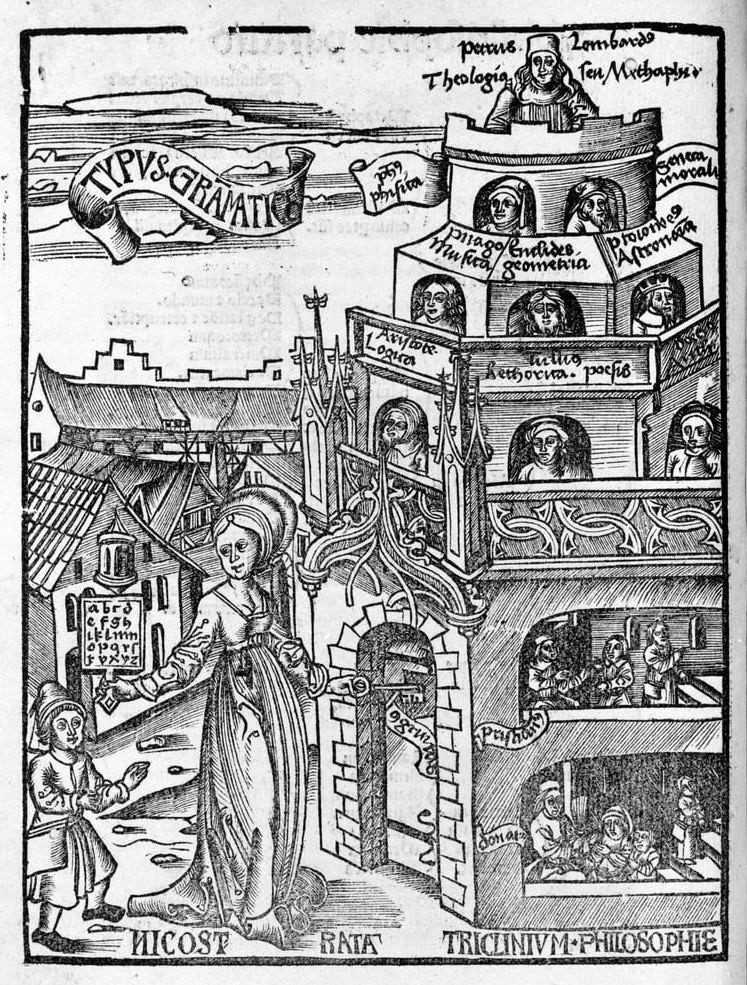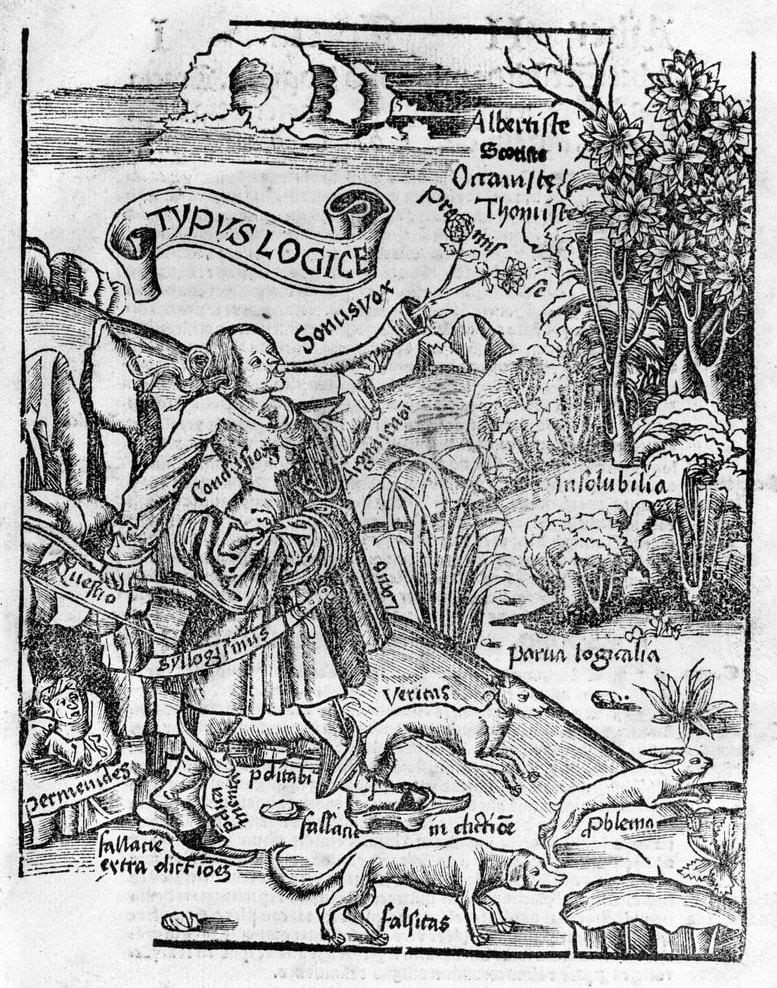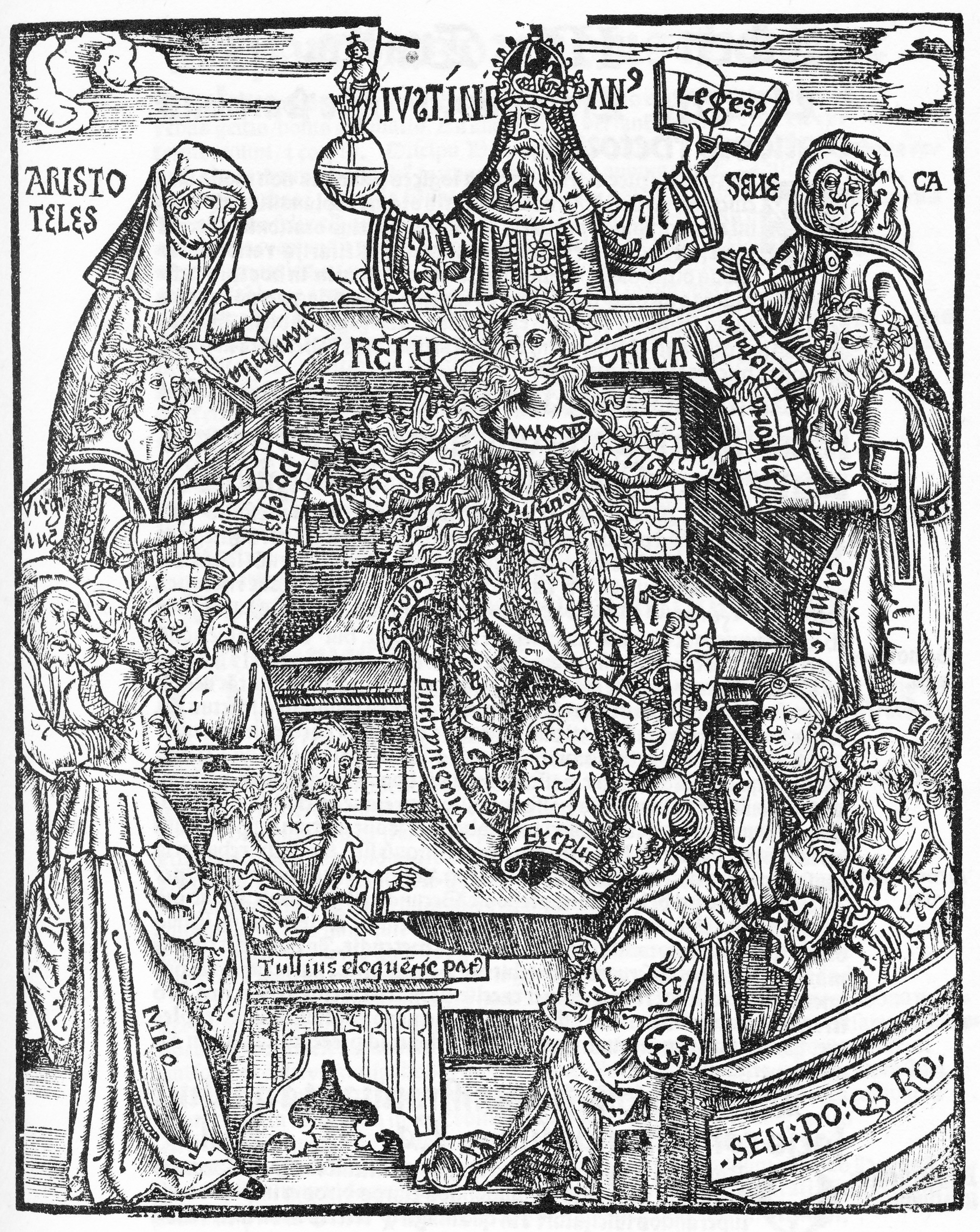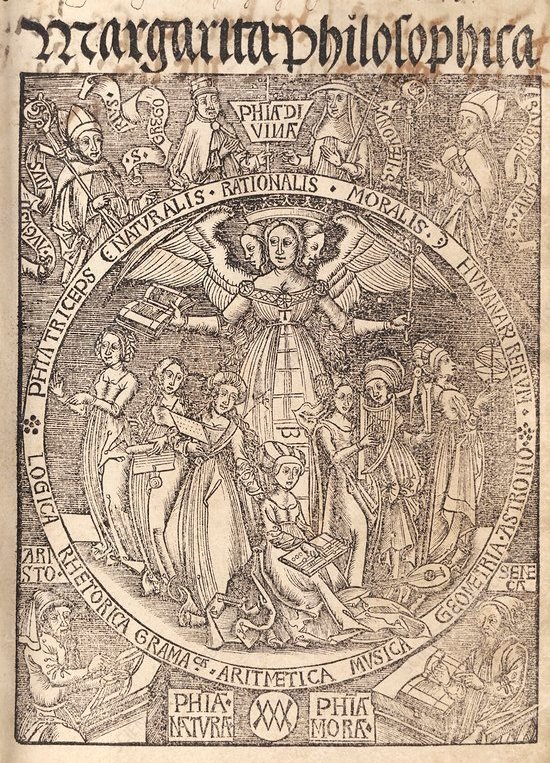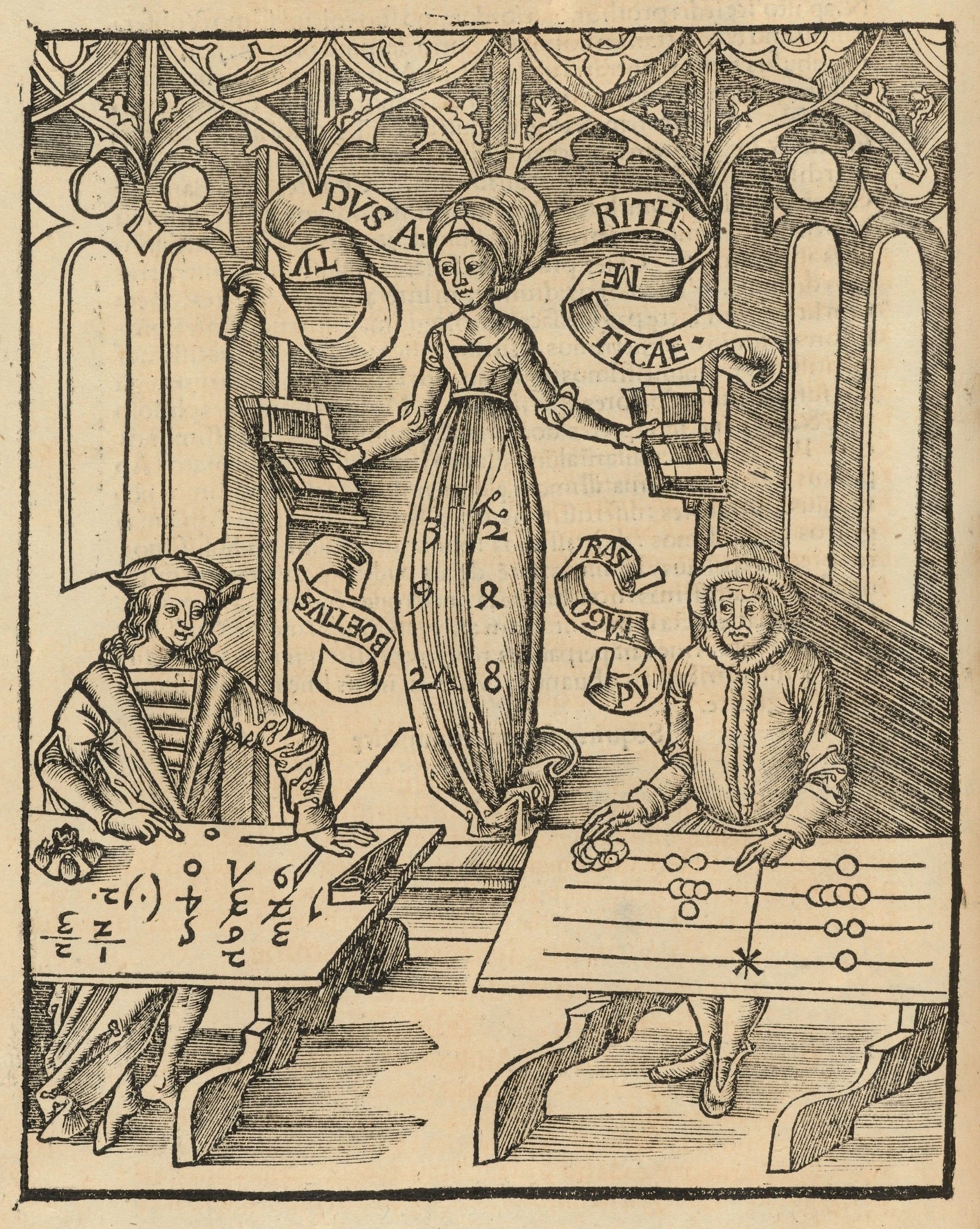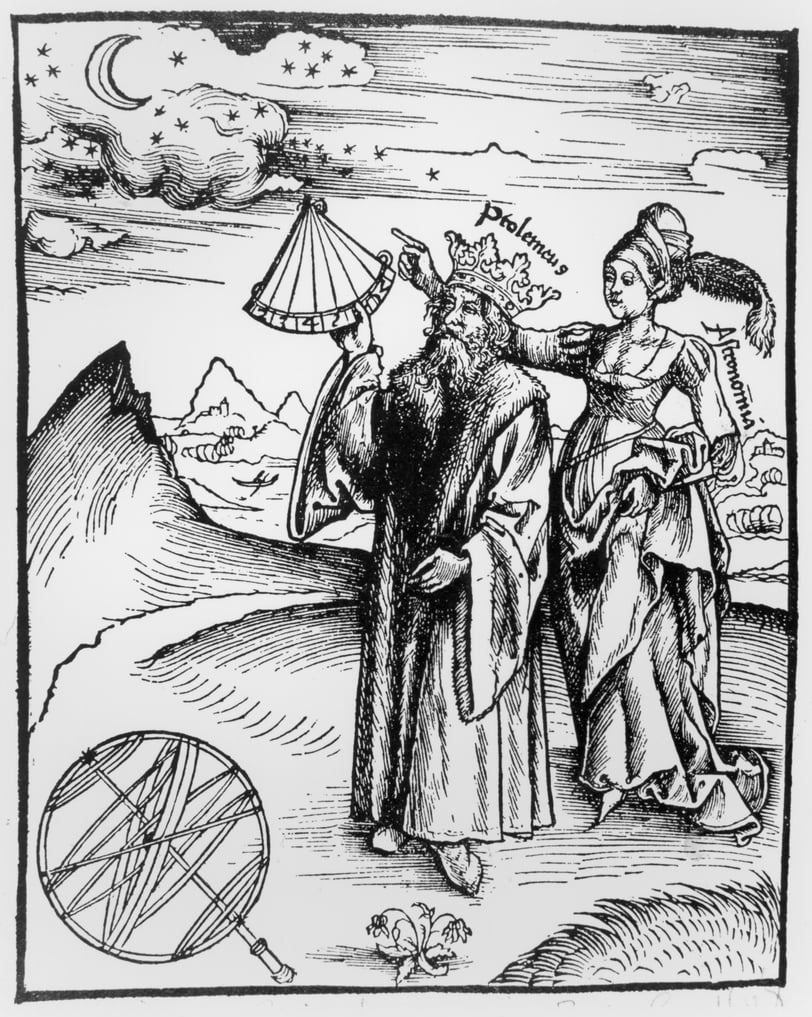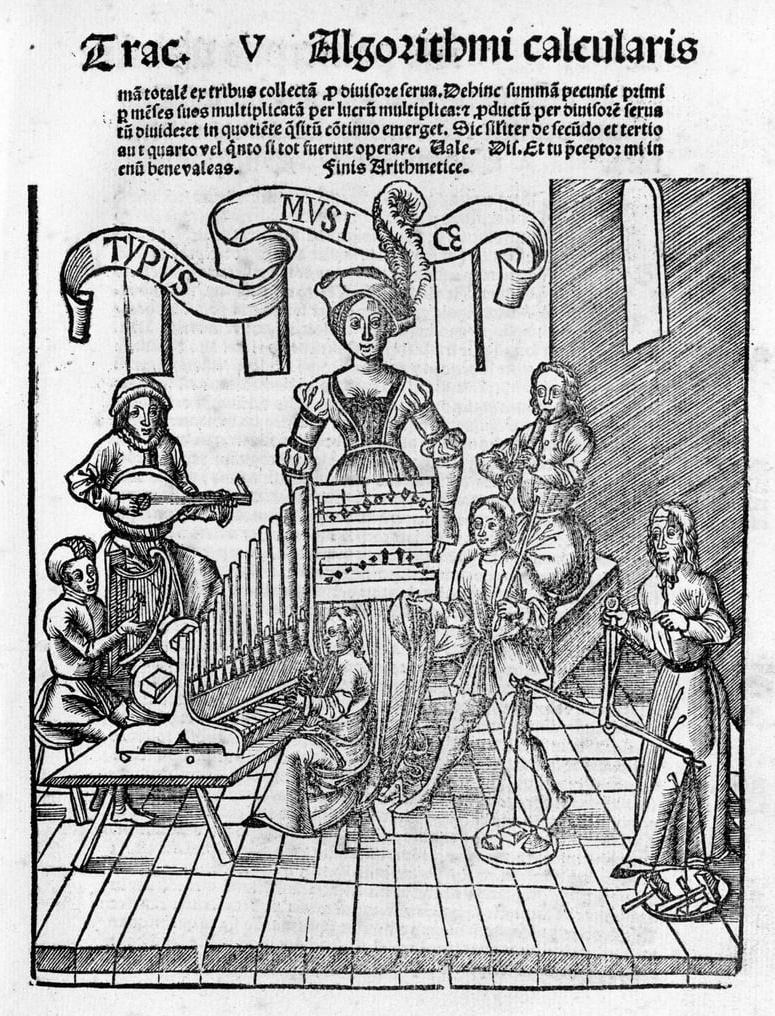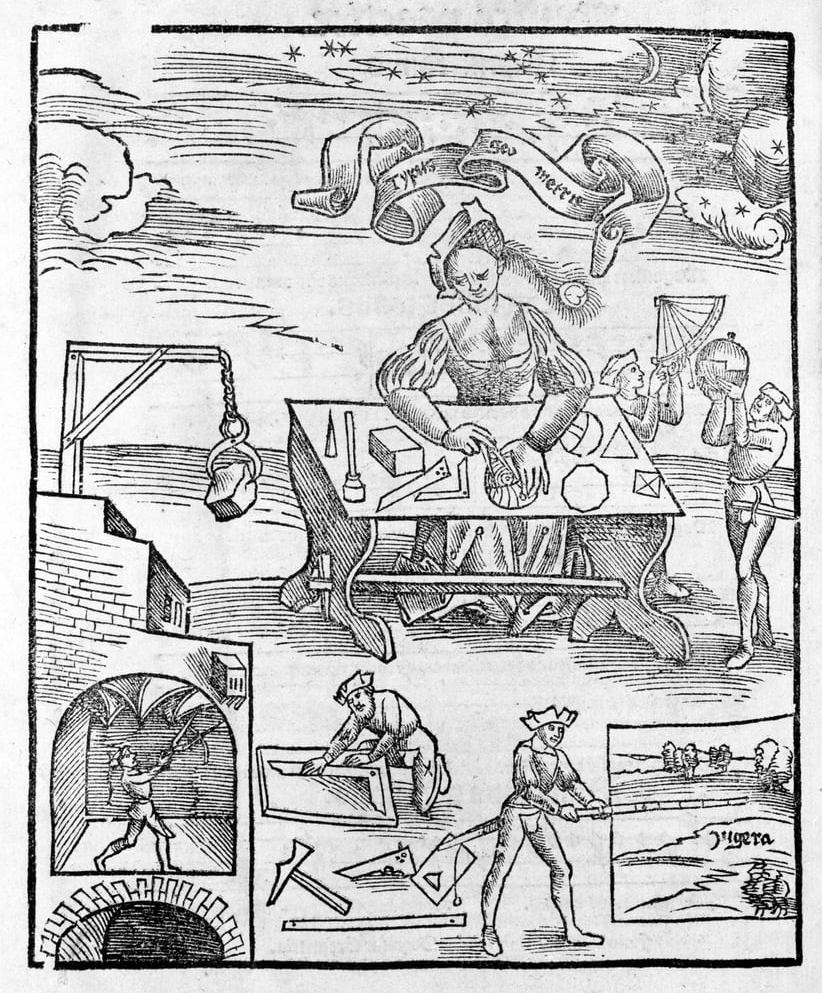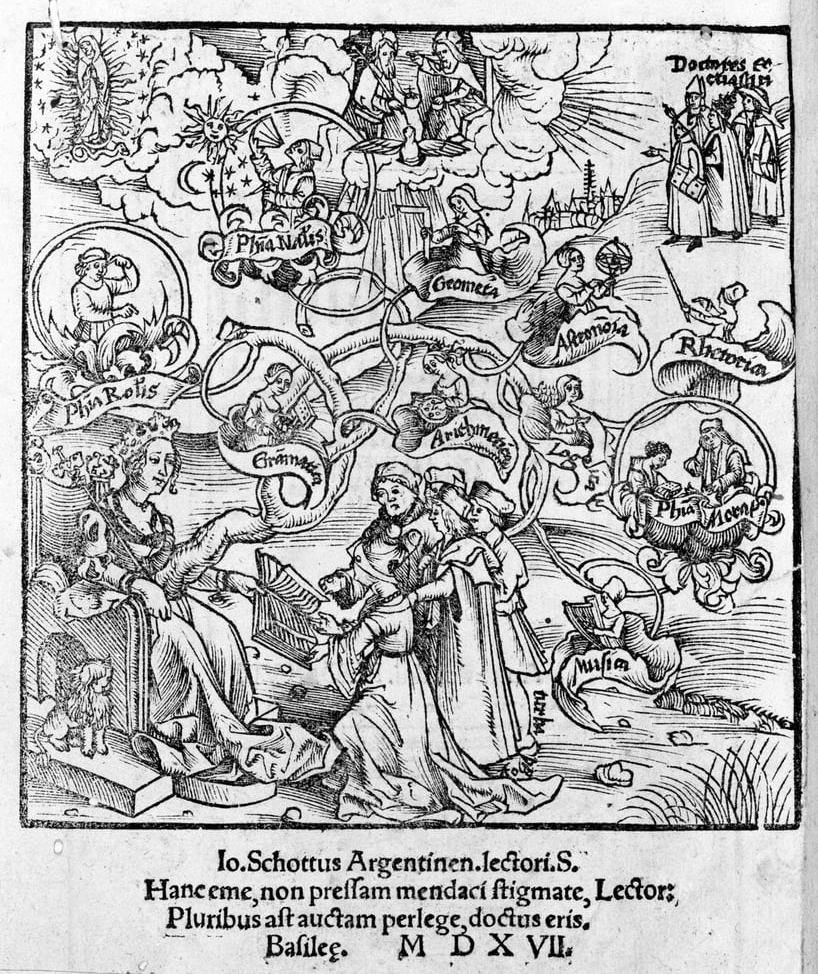Curricula
As I understand it, the educational system in mediaeval Europe developed over a millennium or so, from the time of Boethius (ca 477 – ca 525), and was still in progress at the time of Gregor Reisch (ca 1467 – 1525), whose encyclopaedia contributed so much to the process.
A well-established university system was already in place in a number of centres of learning across Europe (eg Oxford by 1096), with standardised curricula, based on the trivium and quadrivium systems. Instruction was conducted exclusively in Latin.
The trivium (meaning literally, ‘where three roads meet’) was an introductory course, comprising grammar, rhetoric (aka dialectic) and logic.
The quadrivium (‘where four roads meet’) might then be undertaken, comprising arithmetic, astronomy, music, and geometry. The full course could well take twelve years or so, and research might be undertaken as well as study.
The successful student would then qualify as ‘licencia docendi’ (licensed to teach) and would be addressed as magister (Master).
Each discipline had its own ‘typus’, or type, somewhat akin to the Greek system of Muses, though of course the categories were quite different.


